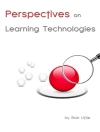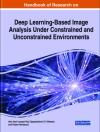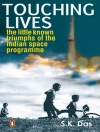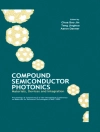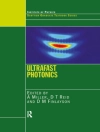This book is on various advanced, simple, and novel techniques being used and developed in the area of manufacturing processes. Manufacturing sector is one of the important areas which help to improve the economy of our nation. It not only generates employment opportunities but also makes us self-reliant (aatma nirbhar). In line with this important agenda of Government of India, this track envisages high-quality research contributions in the field of low-cost manufacturing technologies. It comprises the research and development studies on the various factors that influence the cost of manufacturing of product or system. The factors are materials, manufacturing processes, material handling processes, skilled manpower, quality control technologies, effective communication, and use of artificial intelligence techniques. The papers are on both numerical and experimental research works related to these aspects.
Mục lục
Chapter 1. Analysis of Numerical Method for Modal Analysis of Thin Walled Structures for Achieving Low Cost Manufacturing.- Chapter 2. Corrosion behavior and mechanical properties of ER70S-6 alloy cladding on aluminum using a cold metal transfer process.- chapter 3. An Experimental Investigation into CO2 Laser[1]based processing of Boulder and Marble.- Chapter 4. Application of machine learning in phase prediction of highentropy alloys (HEAs).- Chapter 5. Design and fabrication of an extrusion system for cement paste 3D printing.- Chapter 6. Friction Stir Spot Welding of Honeycomb Core Sandwich Structure.- Chapter 7. Development of low-cost membrane separation technologies.- Chapter 8. Ultra-Precise Single Point Diamond Turning Process and Its Low Cost Alternative Methods.- Chapter 9. Fabrication of Cost Effective Bi -porous Composite Wick for Loop Heat Pipes.- Chapter 10. Development and Characterization of Bi[1]porous Metallic Wick for Loop Heat Pipes.- Chapter 11. Microchannel Fabrication on Polycarbonate using Laser[1]Induced Plasma Assisted Ablation (LIPAA) with Copper Metal Target.- Chapter 12. Co2 Laser Cutting Of White Pat Silk – A Preliminary Work.- Chapter 13. Numerical modelling and simulation of micro machining of biomedical materials using Nd:YAG millisecond pulse laser.- Chapter 14. Surface modification techniques in electric discharge machining: A review.- Chapter 15. Estimation of wire surface quality index during wire electric discharge machining using image processing technique.- Chapter 16. Novel design method for improvement of in-plane energy absorption characteristic of auxetic Re[1]entrant honeycomb structure.- Chapter 17. Response of coconut coir filler reinforced epoxy composite towards cyclic loading: Fatigue property evaluation.- Chapter 18. Parallel kinematics based mechanism and its industrial application in CNC machine tool development.
Giới thiệu về tác giả
Dr. Shrikrishna Nandkishor Joshi
Prof. Shrikrishna N. Joshi is working as a Professor of Mechanical Engineering at Indian Institute of Technology Guwahati, India. He was a Visiting Faculty at the Asian Institute of Technology, Bangkok, Thailand in 2015. His research interests include advanced and precision manufacturing processes with focus on applications of lasers in manufacturing, thin-wall machining, single point diamond turning, CAD/CAM and manufacturing automation. He has published more than 70 research papers and sixteen book chapters in various refereed International Journals and Conferences and has co-edited three books on various topics such as Advances in Computational Methods in Manufacturing (Springer Singapore 2019), Application of Lasers in Manufacturing (Springer Singapore 2019), and Laser based manufacturing (Springer New Delhi 2015). Seven Ph.D students have completed their doctoral studies under his supervision; and nine Ph. D projects are on-going. Prof. Joshi has conducted sponsored research and consultancy projects worth more than Rs. One crore. He has developed a SWAYAM MOOC course on “Automation in Manufacturing” and a web course on “Mechatronics and Manufacturing Automation” for National Programme on Technology Enhanced Learning (NPTEL) funded by Ministry of Human Resource Development, Government of India. He is an Associate Editor of International Journal of Additive and Subtractive Mnaufacturing, Inderscience.
Dr. Uday Shanker Dixit
Dr. Uday Shanker Dixit is presently Professor in the department of Mechanical Engineering and Head of Center for Indian Knowledge System at Indian Institute of Technology Guwahati. He received B.E. degree in Mechanical Engineering from erstwhile University of Roorkee (now Indian Institute of Technology Roorkee) in 1987, M.Tech. degree in Mechanical Engineering from Indian Institute of Technology Kanpur in 1993, and Ph.D. in Mechanical Engineering from IIT Kanpur in1998. He has worked in two industries— HMT, Pinjore and INDOMAG Steel Technology, New Delhi, where his main responsibility was designing various machines. Dr. Dixit joined the Department of Mechanical Engineering, Indian Institute of Technology Guwahati, in 1998, where he is currently a Professor. He was also the Officiating Director of Central Institute of Technology, Kokrajhar from February 2014 to May 2015. Dr. Dixit is actively engaged in research in various areas of design and manufacturing since last three decades. Most of his research work is focused on Modelling of Manufacturing Processes and involves finite element analysis of elastoplastic problems. He has also contributed in design optimization. He has extensively used finite element and soft computing tools for the design and manufacture of mechatronic systems. He has authored/co-authored 140 journal papers, 139 conference papers, 42 book chapters and 7 books in mechanical engineering. He has also co-edited 9 books relatedto manufacturing. He has guest-edited 11 special issues of journals. Presently he is an Associate Editor of the Journal of Institution of Engineers (India), Series C and Regional Editor Asia of International Journal of Mechatronics and Manufacturing Systems. He has guided 16 doctoral and 54 masters’ students. Dr. Dixit has investigated a number of sponsored projects and developed several courses. He is a Fellow of Indian Welding Society, National Advisory Committee member of International & All India Manufacturing, Technology and Design Conference. He was a Board Member of Indian Institute of Technology Kanpur during 2018-21. He is reviewer of several journals and has organized several conferences. He has international collaboration with several researchers.
Dr. R.K. Mittal
Dr. R K Mittal is an Assistant Professor in the Department of Mechanical Engineering at Indian Institute of Technology Guwahati, India. His key research areas are dynamics of machining process, experimental characterization, and modeling of chatter phenomenon in machining, precision machine design and development, and multiscale manufacturing. He has also worked as an Inspire Faculty at Indian Institute of Science Bangalore. He has four years of experience working as a Design Engineer in Bharat Heavy Electricals Ltd, India. He has collaborated with different industries and research institutes for research work and technology development.
Dr. Swarup Bag
Swarup Bag completed his Bachelors’ of Engineering in Mechanical Engineering from the Jalpaiguri Government Engineering College, Jalpaiguri, West Bengal, India in the year 2000, M.E. in Mechanical Engineering in 2002 from Bengal Engineering College, Shibpur, India (now Indian Institute of Engineering Science and Technology) in the year 2002, and Ph.D on “Development of Bi-directional Heat Transfer and Fluid Flow Model for Reliable Design of GTA and Laser Welding Processes” in 2009 from IIT Bombay.Later he has worked at the Center for Material Forming (CEMEF), MINES Paris Tech, France for 20 months in Metallurgy, Structure and Rheology (MSR) group. In the year 2011, he joined the Department of Mechanical Engineering, Indian Institute of Technology Guwahati as a faculty member. He worked as a visiting scholar at Center for Advanced Materials Joining, University of Waterloo, Canada from May to July 2018. His current area of research is fundamental process modeling of welding and joining technologies, additive manufacturing process and laser material processing. Dr. Bag has published about 69 journal papers, 50 conference papers, and 21 book chapters related to welding and joining processes. He is the author of the book ‘Computational models for GTA and laser welding processes’ and recipient of ‘Royal Arc Award 2009’ from Indian Institute of Welding for the best Ph D thesis in welding.
Dr. Bag has developed four MOOCs-NPTEL courses and taught nine different theory courses toundergraduate and postgraduate students at his working place. Until now, seven students have received doctorate degree and seven research scholars are working under his guidance. Twenty-two M. Tech projects and 11 B. Tech projects have completed so far. Three research projects have completed so far in his credit and two sponsored projects are going on.


